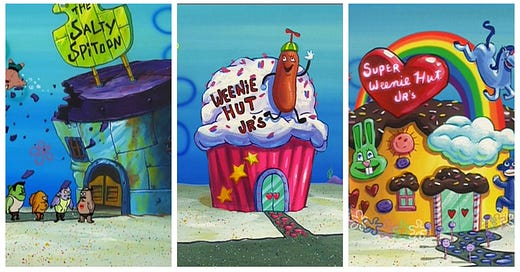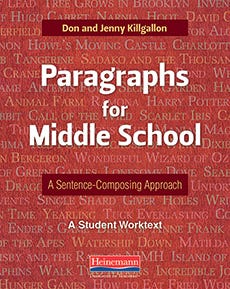I want to take a second to think about how Americans name our schools.
The language represents what we think of each level of our education system, but the naming scheme is inconsistent. What would it mean if we applied the logic of each to the others?
Elementary School
We have several names for this level, but “elementary” is the most common. Under its logic students would progress from elementary school to complex school. But what comes after complexity? Would college be obtuse school?
Sometimes we call this “grade school” instead. The idea here is that students study every subject along with the other students “in their grade” instead of electing separate coursework from their peers and learning in several groups. So by that logic, high school would be called elective school. While completing high school is not at all universal, it has become a near-universal goal in America. That is not the case with college. So, if this naming scheme is concerned with what you do in reference to your peers, college would become optional school.
If you’re really cool, you can call this level “grammar school.” If grammar is about the elements of a sentence at a basic level, then perhaps you’d advance to sentence school, paragraph school, and if you can use at least five of them, essay school.
No, you fools. Paragraphs are high school!
Middle School
Here’s the default term we use for students somewhere between fifth and ninth grade. The ambiguity of the grade level matches the first name we can think of. These kids are just somewhere in that messy middle. It derives its logic backwards from being below high school. But we don’t call the level below this one low school. That seems dismissive in a way that “middle” doesn’t. Middle is aspirational. You’re almost high! You’re so close!
Some college preparatory (oh, that’s another weird term) schools use the words lower school and upper school, but that still softens the blow. The school isn’t low, it’s just lower than some others. It’s just as aspirational and on-the-cuspy as “middle” school.
The term I used as a student was “junior high.” This is differently aspirational. It gives the idea that you’re also in high school, just a smaller version of it. But what’s smaller than junior? If we use SpongeBob’s logic, elementary school would become super junior high school. Hey, that’s way more fun to say!
High School
I’ve already thought about the logic of descending from “high,” but what if you ascend? College becomes higher school. Can we get much higher? I guess graduate school would have to be highest school. In some ways I prefer that term because it indicates societal desperation. “That’s as high as you can go! Please, stop going to school!!”
Alas. I, at the highest of schools, will look down on them and whisper, “No.”
Another word for this level is “secondary” education. Americans tend to say this but not use the word primary for lower grades. So we have the second without the first. But what comes after secondary? Collectively, anything taught at a college or university is called “postsecondary.” Is that because we’re afraid to call it tertiary school? Or is that we know in our hearts that we’d be doomed to keep counting. After getting my quaternary degree. If that goes well, I could even start applying to quinary programs. What we now call postdoctoral positions could so elegantly be called senary positions. Imagine how much better our use of numeric adjectives would be as a society…
College
The tough thing about this word is that it doesn’t have a sequential element like so many of the others. College just means “gathering with.” The same goes for “university,” meaning “groups associating in one body.” The education system as we know it in the US began with college and expanded downwards to form preparatory institutions. Perhaps that’s why its nomenclature indicates a unique phenomenon, rather than placing it within a sequence of organizations.
But anyway, what precedes a gathering together? Alone school??
No, hold on, where are you, physically, before you gather with others? You’re home! Before you gather at college, you are at home school. Even if you’re not educated in your home, students typically live at home before college and live away from home in college…
Alright, I need to stop before I “um, actually” myself into believing I was homeschooled for 13 years.
-Matt





